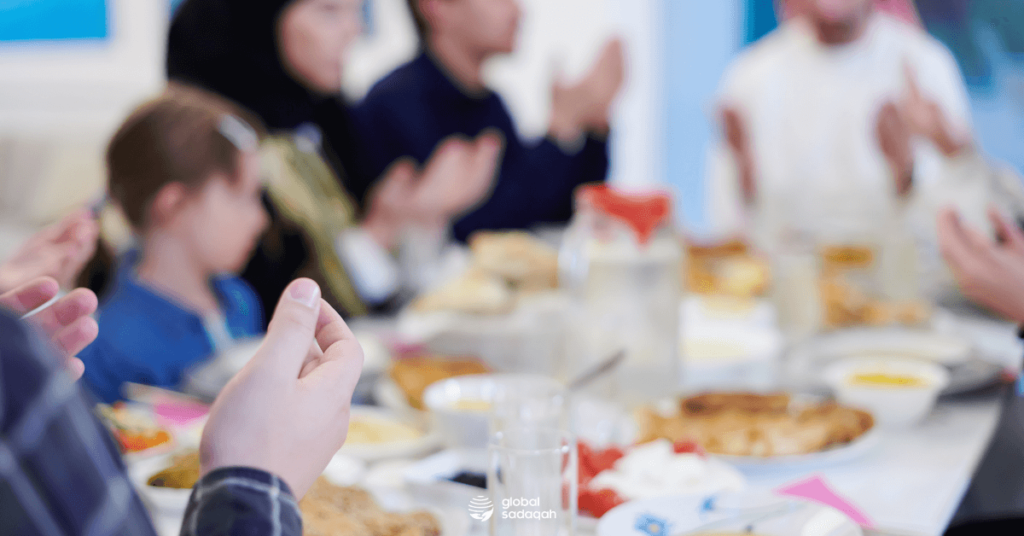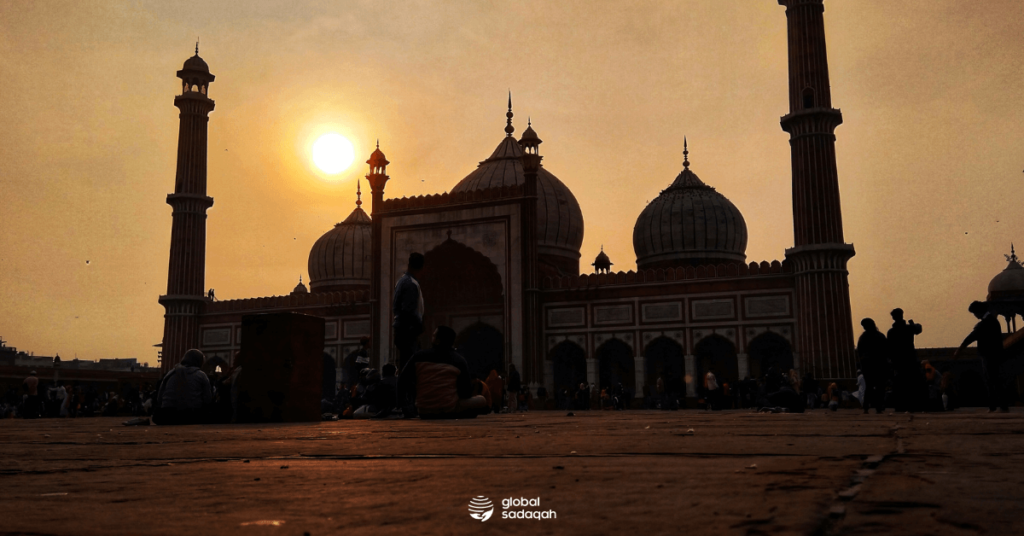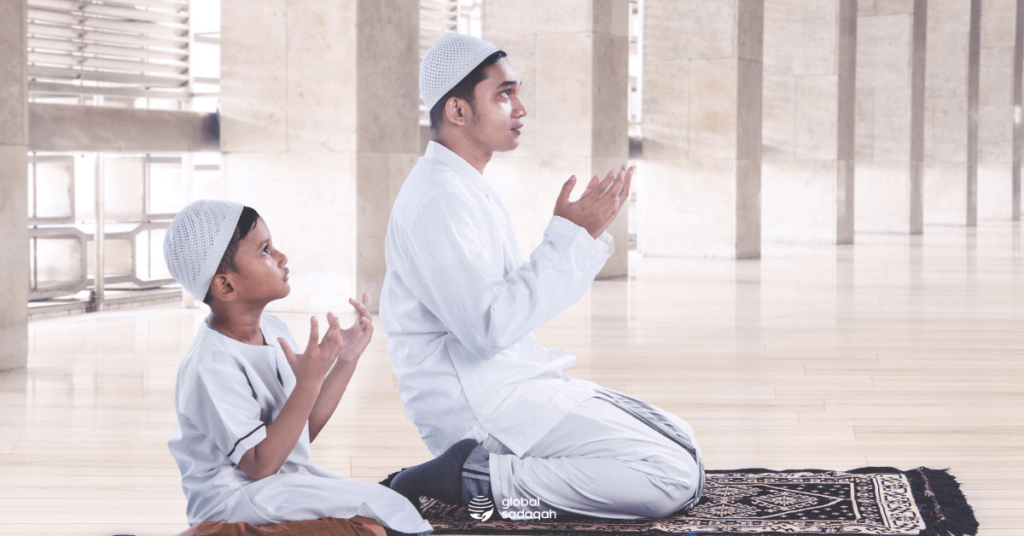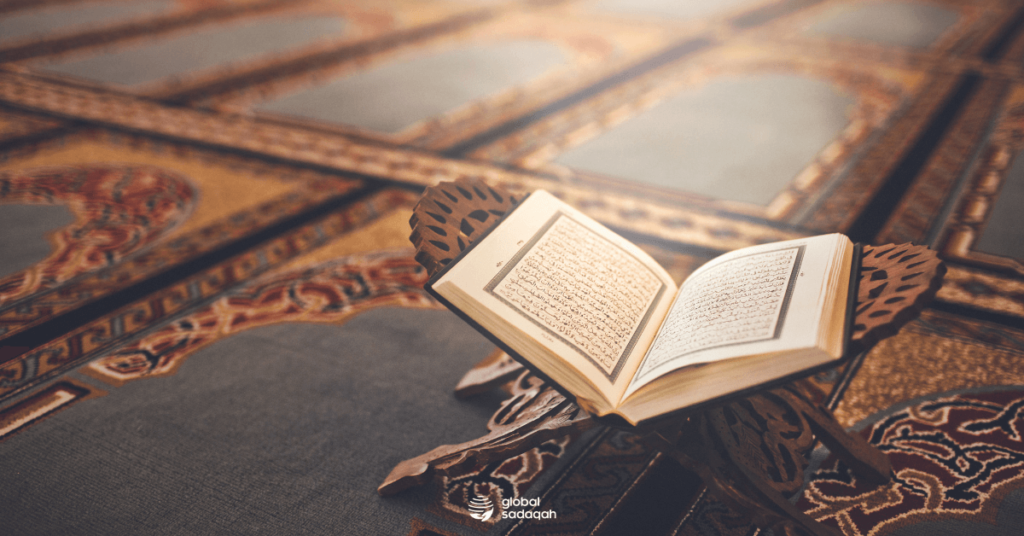Ramadan may seem like a month of fasting and restraint. But to a Muslim, it is nothing short of a miracle month filled with mercy, blessings, and contentment.
For millions, it’s a month where rewards are multiplied manifold and prayer is accepted. But just how far is the mercy in the month of Ramadan and how big of an opportunity is it?
Blessings of fasting and the Quran
The reward for reading the Quran is tenfold for each letter recited. Fasting In Ramadan and the Quran are said to both intercede on behalf of the fasting person on the day of judgement. The prophet (peace and blessings of Allah be upon him) said:
“..Fasting says, ‘O my Lord, I have kept him away from his food and his passions by day, so accept my intercession for him.’ The Qur’an says, ‘I have kept him away from sleep by night, so accept my intercession for him.’ Then their intercession is accepted.” (Al-Tirmidhi, 1963)
Fasting also acts as a protection for the fasting person; it helps him in avoiding Immorality, anger, prohibited acts, folly, and haram. Allah’s prophet said:
“Fasting is a shield or protection from the fire and from committing sins” (Bukhari).
The status of those who fast

Among the many acts of worship that a person performs, fasting in Ramadan is one that holds a unique status. The prophet (pbuh) said:
“Every deed of the son of Adam is multiplied from ten to seven hundred times. Allah the Exalted says: Except for fasting, for it is done for my sake and I will reward it.” (Sahih Muslim, 1151)
There is also a special status in Islam for those who observe the fasting of Ramadan when entering paradise. The prophet (pbuh) said:
“There is a gate in Paradise called Ar-Raiyyan, those who fast shall be invited into it, and whoever was among those who fasted, then he will enter it; and whoever enters it, he will never thirst again.” (Jami’ al-Tirmidhi, 765)
Improving your relationship with Allah this Ramadan
Ramadan is the month in which the holy Quran was brought down. It’s also the month where the gates of hell are closed and the gates of heavens are open, While the Shaytan is chained and Rahmah and blessings are upon us. With an atmosphere of mercy and tranquility, this blessed month is the perfect chance for Muslims to reignite their worship and strengthen their faith and relationship with Allah (SWT).
Gaining peace in the month of Ramadan

Ramadan is characterised by peace as people are expected to refrain from anger and practice soundness and calmness. The Prophet (pbuh) said: “Whoever does not give up false statements (i.e. telling lies), and evil deeds, and speaking bad words to others, Allah is not in need of his (fasting) leaving his food and drink.””Whoever does not give up false statements (i.e. telling lies), and evil deeds, and speaking bad words to others, Allah is not in need of his (fasting) leaving his food and drink.”
Muslims should practice self-discipline, control and restraint and reflect and reevaluate their actions and should pursue Taqwa (fear of Allah (SWT)). Within Ramadan is also laylatul qadr, a night of peace and tranquility. Allah says in the Quran about this night:
“The Night of Power is better than a thousand months. The angels and the Spirit descend therein, by the permission of their Lord, with all decrees. (That night is) Peace until the rising of the dawn.” (Quran: 97:1)
Dua acceptance increases in Ramadan

Ramadan holds many opportunities for the acceptance of dua. One such opportunity is during iftar as it is said that the dua performed by a Muslim right before breaking his fast is accepted. The Prophet (pbuh) said: “Verily, Allah has people He redeems at the time of breaking fast, and that is during every night.” (Sunan Ibn Majah, 1643)
Laylatul qadr is also said to be a night where dua is surely accepted and all one has to do is attend the night and make dua. Furthermore, tarawih and qiyamullail is an opportunity for every muslim to make as much dua as possible as the night time is the best time for dua to be accepted.
Forgiveness of sins
When one attends lailatul qadr, surely their past sins will be erased The Prophet said: “Whoever established prayers on the night of Qadr out of sincere faith and hoping for a reward from Allah, then all his previous sins will be forgiven; and whoever fasts in the month of Ramadan out of sincere faith, and hoping for a reward from Allah, then all his previous sins will be forgiven” (Bukhari, 1901).
In another hadith, it is mentioned that fasting with sincerity is also a key for erasing sins. It was by the prophet (pbuh) that: “Whoever fasts Ramadan out of faith and with the hope of (Allah’s) reward, all his previous sins will be forgiven.” (al-Bukhaari, 37)
Ramadan is an opportunity for amplified rewards

Rewards in Ramadan are amplified times in many ways. The reward of feeding those in need who are fasting is a great act of charity in Ramadan. The prophet (pbuh) said: “Whoever gives food to a fasting person with which to break his fast, he will have the reward equal to his (the fasting person), without it detracting in the slightest from the reward of the fasting person.” (al-Tirmidhi, 3/171)
Ample rewards are also available for a person if they observe lailatul qadr which is worth the reward of a thousand months or equivalent to over 80 years in a person’s regular lifetime. Furthermore, whoever fasts Ramadan and six days of Shawwal will receive the reward of fasting for the entire year. The Prophet Muhammad (PBUH) said: “Whoever fasts during the month of Ramadan and then follows it with six days of Shawwal (Syawal) will be rewarded as if he had fasted the entire year” (Sahih Muslim, 1164)).
Additionally, performing Umrah in Ramadan is equal to a Hajj (pilgrimage) or a Hajj with Prophet Muhammad (pbuh). (Muslim, 1256)
Ramadan is no doubt full of many more opportunities for those wanting to strengthen their Iman. Let us ensure that we value this month of blessings and use it to its best potential.

